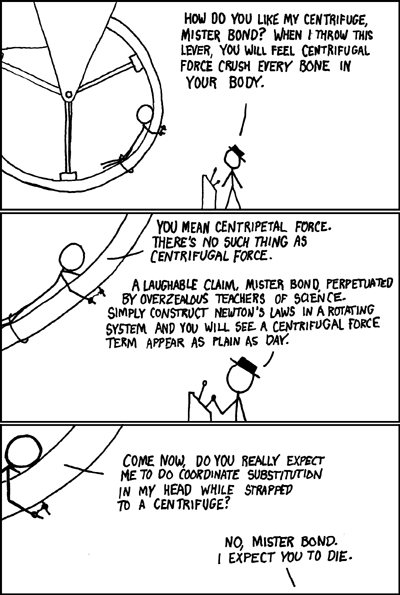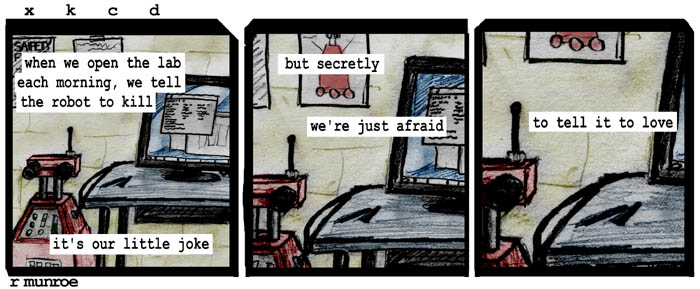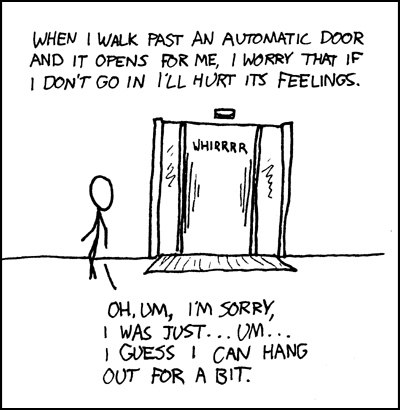A couple fridays ago, I attended the DJ Spooky Visions and Voices event at Ground Zero, primarily for a musical analysis assignment in one of my courses. Unfortunately, the event turned out to be more of a lecture than performance, but it sparked some interesting philosophical questions. DJ Spooky was clearly a very intelligent and educated individual, but I found myself disagreeing with some of his perspectives on art and ownership.Before continuing, I recognize that not everyone can DJ. Finding the right samples to mix together into a compelling track isn't a simple craft. And it can be impressive to hear two songs that, while seeming completely incompatible with each other in their original form, end up combined in an engaging, sonic latticework that makes you wonder: "How did he think of using those together?" And with an easier access to the world's music, globalization has opened up even more possibilities for DJs.
That said, being a DJ seems to have artistic limitations in terms of self-reliance, in that most his work is usually, albeit complex, an amalgamation of original creations by other musicians. The DJ, then, to paraphrase DJ spooky, acts like "a filter." Various works come through him and are uniquely filtered to form a mix. But he also consistently referred to himself as an artist, and I guess where Spooky and I differ is in the degree of innovative artistry involved in being this "filter." For me, unless a DJ uses mostly his own material, it is a preponderance of external sampling that compromises a DJ's artistic independency. And this is because I believe art is significantly qualified by it being exclusive to its creator. If Bach had never existed, would another composer have come along and written the Well-Tempered Clavier, note for note? You'd sooner see Jessica Alba act well. One could argue, of course, that with all the variables a DJ works with when sampling and mixing a track together, his final product is his creative brain-child; the artistic lens of his filtering is exclusively his. To an extent, I would agree, but without those other innovations that lens would have nothing, or very little, to work with. Going back to the Bach example, if a DJ has sampled Bach in his works, then deleting Bach's music from history would critically fracture that DJ's music as well. Yes, in general, musicians are inspired by other musicians, and are therefore subject to some artistic dependence as well, but this relationship usually serves (if one isn't a flagrant plagiarist) as a creative motivator, a catalyst. Original recordings may inspire a DJ as well, but it's also the medium they work with. Rather than carve a new sound sculpture, they segment and combine pre-existing ones, however interesting that may be. I'm not saying that DJ's are rip-off craftsmen masquerading as artists, but after listening to DJ Spooky I wonder if some DJs may be giving themselves too much credit.
What's peculiar is that DJ Spooky seemed to uphold a rather socialistic approach to music, in that it's more "of an exchange between people" than a stable item. In my opinion, this is rather inconsistent with labeling oneself as an artist, especially an independent one. I don't disagree that there's dynamism to pre-existing compositions, whether it be in interpretation, transcription, covers, etc. But there are also immutable characteristics that make "Bohemian Rhapsody" what it is: "Bohemian Rhapsody." And I don't recall DJ Spooky ever explicitly calling himself any kind of visionary or innovator (in fact, for the most part he was pretty humble), but it seems hypocritical to suggest individualism by planting your stage name on your oeuvre and then suggest collectivism by asking, as he did when referring to copyright law and the transfer of digital memory, "who owns memory?"
If one is to embrace both this perspective of personal "filtering" and no concept of intellectual property, can't I just edit the tags on my iTunes library to say they're my own? Unfortunately, this has already happened to some degree with common P2P file sharing programs like Kazaa or Limewire. Tracks are frequently labeled with the wrong information, and become shared so rapidly that the genuine data might be in the minority. Would we really want this to exacerbate to a point of complete musical solipsism? DJ Spooky said in the Q & A that copyright laws "stifle creativity," which is very understandable if you embrace his philosophy. But, while I don't at all advocate a totalitarian control of intellectual property, I think copyright laws give musicians some dignity for their creations. I may even go far enough to say that they can be helpful reminders of how special music is.
Read More

 Vampire Weekend came to the
Vampire Weekend came to the 
 Of course there are those more civilized Celts:
Of course there are those more civilized Celts:
 Luckily the bands (but not necessarily the fans) that I've seen so far actually hail from Scandinavia...that makes their outlandish acts a little more acceptable. It seems it will only be a matter of time, however, until I come across an all-American alternative. That would be the last straw! (and as 311 would say, "there is no reason to take it there at all")
The silly band member photos aren't restricted to just viking metal, though. Many genres categorized under the "metal" bubble follow this trend. I think one of my favorite metal bands,
Luckily the bands (but not necessarily the fans) that I've seen so far actually hail from Scandinavia...that makes their outlandish acts a little more acceptable. It seems it will only be a matter of time, however, until I come across an all-American alternative. That would be the last straw! (and as 311 would say, "there is no reason to take it there at all")
The silly band member photos aren't restricted to just viking metal, though. Many genres categorized under the "metal" bubble follow this trend. I think one of my favorite metal bands,  Link:
Link: 
 After going through withdrawal from Katamari Damacy- one of my favorite PS2 games of all time (Katamari Damacy is a game where you roll up objects on Earth that are bigger than you are into balls in order to make stars.), a friend of mine sent me this one:
After going through withdrawal from Katamari Damacy- one of my favorite PS2 games of all time (Katamari Damacy is a game where you roll up objects on Earth that are bigger than you are into balls in order to make stars.), a friend of mine sent me this one:
 Do you get it?
This website also has jokes that are made for the science-nerd or math-geek in all of us:
Do you get it?
This website also has jokes that are made for the science-nerd or math-geek in all of us:
 Finally, there are the three or four panel comics that simply and uniquely encapsulate human emotion:
Finally, there are the three or four panel comics that simply and uniquely encapsulate human emotion:
 and
and
 I spend way too much time laughing at this website, and I encourage you to do the same.
Postsecret is a community art website run by Frank Warren that receives postcards from all over the world with peoples' secrets written on them. He posts a new card with a secret on it every Sunday. The cards range from sweet to hilarious to heartbreaking. There are also
I spend way too much time laughing at this website, and I encourage you to do the same.
Postsecret is a community art website run by Frank Warren that receives postcards from all over the world with peoples' secrets written on them. He posts a new card with a secret on it every Sunday. The cards range from sweet to hilarious to heartbreaking. There are also 